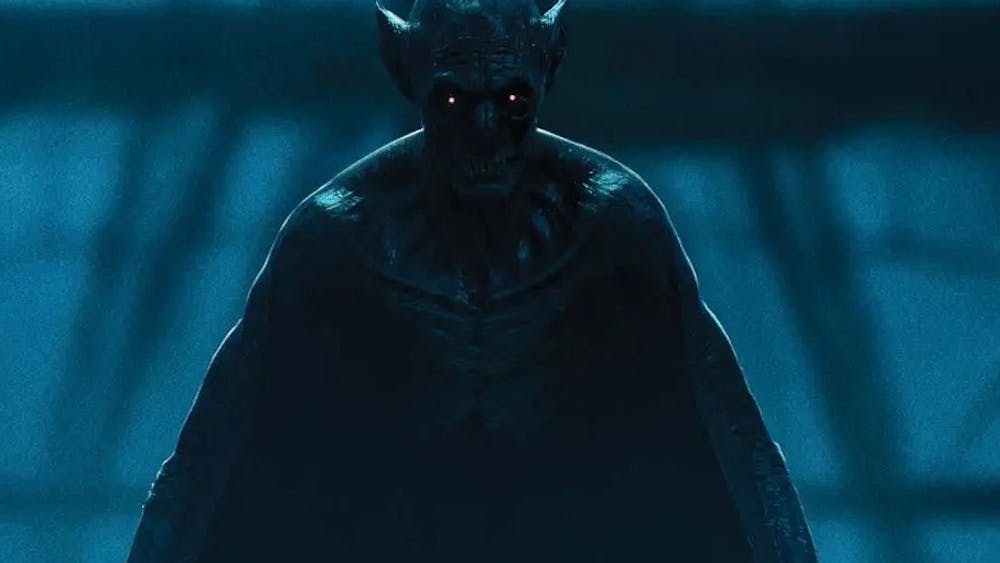The injustice and evil of oppression came alive with raw emotion and talent Friday evening through the IU Department of Theatre & Drama's performance of "Our Country's Good"in the Wells-Metz Theatre. The Timberlake Wertenbaker play, which tells the story of a group of convicts exiled from England to Australia for petty crimes, allowed the talent of each cast member to shine, while confronting issues of class, racism and sexism.\nThe play takes the audience members into the mind of the oppressor and shows the effects injustice has on both the oppressed and the oppressor. In an early scene, the officers who are sent to Australia for losing the American Revolution are questioning whether or not the convicts should put on Farquhar's comedy, "The Recruiting Officer," which depicts the development of inferior races and classes. \nAs the officers discuss whether the convicts should be allowed to rehearse the play, they validate each other's beliefs that the convicts are inherently savage. Their dialogue reveals how education and culture are often kept from people in inferior positions because it threatens the imbalance of injustice. \nJunior Kevin Anderson, who plays Ketch Freeman/Major Robbie Ross, and graduate student Scot Purkeypile, who plays Captain Captain Campbell/Harry Brewer, did an excellent job gaining sympathy from the audience as victims of oppression and, in the very next scene, as abusive and humiliating oppressors. \n"I double-cast the play so the convicts play the officers because we're all one in the same," said Director Bruce Burgun. "We could incubate either side in us. It is all about which side you choose." \nDehumanization of the poor and unfortunate is a recurring theme in the play. Many of the officers violently abuse the convicts, illustrating that inhumane actions create dehumanization. As the play takes the audience through the characters' struggle to see themselves as more than criminals and sex objects, it shows how the officers stubbornly try to keep the convicts from gaining a voice of empowerment. \nThe officers humiliate the convicts, challenging their manhood and modesty, sexually abusing one of the female convicts and threatening the Lt. Ralph Clark, the director of the convicts' play. Clark, who is played by returning actor and graduate student Jason Marr, uses the power of the theater to reveal that savagery in humans is constructed, not inherent, in people.\n"I loved the play because it's about me, it's about us, the actors," Marr said. "My character gets into the play because he wants to be promoted. He sees it as political at first, but through the play, he finds his voice and humanity. Anyone who is a theater artist can understand that." \nJuxtaposed with Marr's empathetic and powerful performance, the offending officers are seen as terrorists who use mental manipulation and physical violence to keep the convicts frightened and meek. \nThe complex work explores gender roles, depicting women pigeonholed into being married and valued for the amount of sex they provide. Senior Jenna Weinberg, who gives an energetic performance of convict Dabby Bryant, challenges stereotypes by begging the director to play herself in the "Recruiting Officer," because as Dabby Bryant puts it, "getting married and playing a seductress is not interesting." This specific character sheds light on women's roles in society and on how women from diverse backgrounds can be seen as less than feminine.\nAs the convicts continue to practice the play, the act stimulates their senses and thoughts, and a sense of understanding forms between the group and Lt. Clark. When Meg Long, played by senior Rachel Crouch, and Clark confess their love for each other, a nude scene thoughtfully symbolizes the vulnerability love creates in all of us, regardless of station. \nThe scene that demonstrates the actors' bravery and dedication to the theater is a turning point in the play; theater and love transcend brutality and injustice. As the play closes, the convicts are transformed from brawling women and common criminals into introspective men and women who use art as a way to find hope in a dark place. \nAdditional performances of "Our Country's Good" are at 7:30 p.m. tonight through April 1 at the Wells-Metz Theatre. For ticket information call 855-1103.
Actor's bravery, talent shine in 'Our Country's Good'
Get stories like this in your inbox
Subscribe





